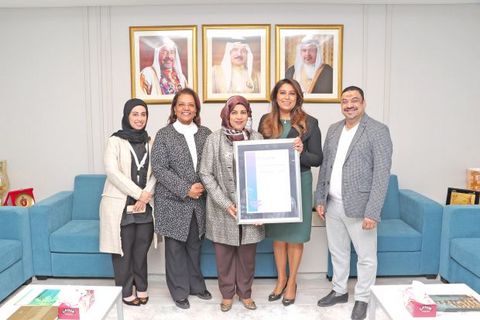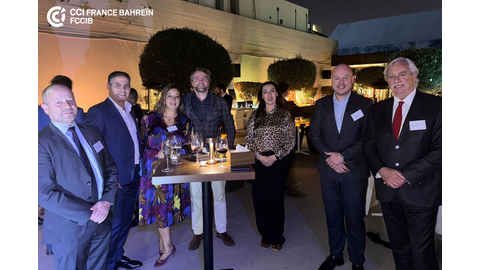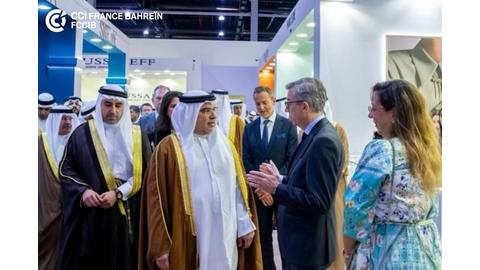Bahrain ‘has potential to be GCC medical tourism hub’

POSITIONING Bahrain as a potential regional hub for medical tourism is a key priority for the country’s health regulator as it releases updated accreditation standards.
The National Health Regulatory Authority (NHRA)’s new accreditation standards will be implemented starting September this year but will be made available to hospitals and medical facilities this week.
Medical and travel experts say top-class facilities, respected medics and accredited care provision are just what patients seek when looking for affordable treatment and recuperation.
“Bahrain, with its world-class healthcare system and services, has a huge potential to emerge as a health tourism hub in the GCC region,” NHRA quality and accreditation advisor and consultant Dr Amena Malik, who is part of the NHRA accreditation committee, told the GDN.
“One of the strategies for the NHRA to contribute to this goal is to ensure that each healthcare facility that provides medical care is held to a high level of quality and patient safety through its inspection department and the national accreditation programme.”
The authority has accredited 99 facilities in the kingdom, of which 23 are hospitals and 76 are medical centres, reviewing and awarding accreditation to 100 per cent of eligible hospitals by the end of 2021 to internationally-recognised standards.
Incidentally, the much-acclaimed futuristic King Hamad American Mission Hospital will become fully operational by the end of this month, equipped with state-of-the-art robotic surgery technology and much more, adding to the portfolio of health sector provision in Bahrain.
Since the NHRA accreditation programme began in 2017, approximately 50 surveyors from varied backgrounds in medicine, dentistry, engineering and allied health services including physiotherapists and pharmacists, have reviewed 6,000 hospital core standards and 10,962 medical centre core standards.
Approximately 17,000 recommendations have been given and acted upon. The NHRA Accreditation Committee is led by chairperson Dr Mariam Al Jalahma and deputy chairperson Dr Naeema Alsubaee and includes Sumaya Hussain Abdul Rahman, Hisham Al Awami, Dr Malik and Narjes Ashkanani.
In the past 18 months, the NHRA has been working with stakeholders in the private and public sectors to update its standards. “This exercise culminated in a robust set of standards made by Bahrainis for Bahrainis,” Dr Malik explained.
“This home-grown, culturally-sensitive set of standards is the first of its kind in the region and has incorporated both the rules, regulations and laws of Bahrain, plus evidence-based criteria to ensure best practice in healthcare.
“The criteria used for this update included a gap analysis against the International Society for Quality in Health Care principles, an analysis of feedback received, agreements on new additions to the standards, initial development and further feedback of standards, internal consultation through the departments of NHRA, then a wider consultation with the healthcare community and the public.
“The standards were then put through an external peer review assessment by the International Society for Quality in Health Care (ISQua).”
ISQua is a global not-for-profit member network that promotes quality and safety in healthcare through a number of collaboration-based member-focused initiatives and programmes.
ISQua’s Healthcare External Evaluation Association delivers a unique global accreditation service, called the International Accreditation Programme, to external evaluation organisations and standards-developing bodies.
In January this year, the NHRA was awarded the ISQua accreditation, enabling it to validate existing systems and drive continuous quality improvement.
The new peer-reviewed accreditation standards build on previous standards, further clarifying them, enabling first-time applicants to attain the top-level ‘Diamond’ Accreditation, as long as they meet the stringent requirements, Dr Malik noted in an Instagram Live session aimed at educating healthcare professionals about the upcoming requirements.
“Based on feedback received from stakeholders, these new standards also guide and support the facilities succinctly and provide a step-by-step guide for a successful accreditation journey for healthcare facilities,” Dr Malik added.
The new standards will also allow NHRA to collect relevant healthcare data around regulation, licensing, safety, good practice and more.
“The data generated gives those going through the accreditation process a much richer and more detailed synopsis of not only where improvements can still be made but of their actual achievements and highlights where good practice is embedded,” Dr Malik added.
Medical tourism represents a worldwide, multi-billion-dollar phenomenon that is expected to grow considerably in the next decade, reports news-medical.net. For the individual interested in health services, cost is the key factor involved in the decision to receive medical care abroad.
As healthcare costs in the US and other parts of the world are excessively soaring, many employers and insurance companies started to view medical tourism as a way to lower them. More and more countries around the globe start to see the financial benefits from this emerging market, so they offer premium medical services at notably lower prices.
What really puts the word ‘tourism’ in medical tourism concept is that people often stay in the foreign country after receiving a medical procedure. Travellers can thus take advantage of their visit by sightseeing, taking day trips or participating in any other traditional tourism activities.


